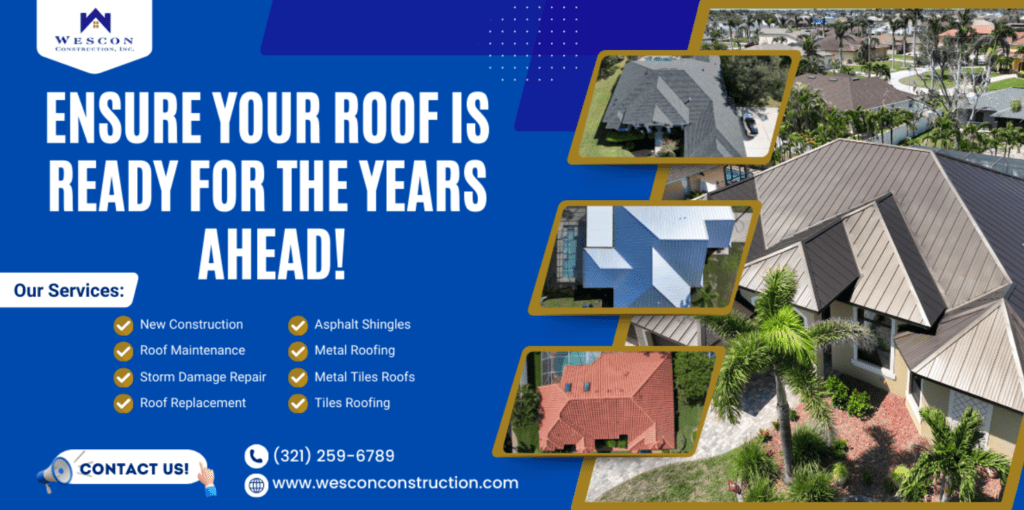Tax Deductions On Metal Roofs You Need To Know About
Metal roofs are more than just a durable roofing choice; they also bring significant financial benefits.
If you’re considering installing one, it’s crucial to understand the potential tax deductions available. These deductions and credits can help offset the initial investment, making a metal roof an even smarter choice for homeowners.
Key Takeaways
- Metal roofs may qualify for federal energy-efficiency tax credits.
- Some states offer additional deductions for energy-saving improvements.
- Tax credits apply only to certain types of metal roofs.
- Proper documentation is essential to claim these deductions.
- Consulting a tax professional can simplify the process.
Why Are Metal Roofs a Tax-Savvy Choice?
Metal roofs are designed to be energy-efficient, which is why they often qualify for tax incentives.
Many come with reflective coatings or specialized materials that minimize heat absorption. This feature not only reduces energy bills but also aligns with federal initiatives promoting energy-efficient home improvements.
For homeowners in regions with extreme weather, metal roofs are particularly appealing. They’re known for their ability to resist damage from hurricanes, saltwater corrosion, and heavy snow.
These practical benefits, combined with potential tax savings, make metal roofs a financial no-brainer. If you live near the coast, choosing a roof designed to resist saltwater corrosion is particularly valuable.
Learn more about metal roofing near salt water to make an informed choice.
Understanding Federal Tax Credits for Metal Roofs
Federal tax credits aim to encourage energy-efficient home upgrades. Metal roofs often meet the criteria because they reduce the energy needed to heat or cool a home.
1. Eligibility Criteria
To qualify for a federal tax credit, the roof must:
- Be installed on your primary residence.
- Meet Energy Star certification standards for energy efficiency.
- Be completed within the tax year you’re claiming the credit.
2. Savings Potential
Homeowners can receive up to 30% of the cost of their metal roof installation as a tax credit. However, this benefit is capped at $500. While it might not cover the entire cost, it’s a valuable way to reduce your tax liability.
3. Important Limitations
Not all metal roofs qualify. Reflective coatings or other energy-saving features are typically required. Without these, you might miss out on the tax benefits.
State-Level Incentives You Shouldn’t Ignore
While federal tax credits are the most well-known, many states have their own programs to reward energy-conscious homeowners. These programs can vary widely, but they often include:
1. Energy Rebates
Some states provide cash-back rebates when you install energy-efficient roofing. These rebates can help reduce your upfront costs significantly.
2. Property Tax Reductions
Upgrading to a metal roof can sometimes lead to lower property taxes, especially in states that promote energy efficiency through green building initiatives.
3. Local Grants or Programs
Check with your local government to see if they offer grants for eco-friendly home improvements. These can add even more savings to your roofing project.
For tips on extending your roof’s life and getting the most from your investment, see how to maximize roof longevity.
Not All Metal Roofs Are Created Equal
To take advantage of tax deductions and credits, the type of metal roof you install matters. Here are some factors to consider:
1. Energy Efficiency
Roofs with reflective coatings or solar reflectance capabilities are most likely to qualify for tax incentives.
2. Durability Features
If you live near saltwater or in a hurricane-prone area, selecting a roof designed to handle these conditions is essential. Learn about choosing the best hurricane-proof roofs to ensure long-term protection.
3. Installation Quality
Improper installation can disqualify your roof from tax credits. Hiring a professional roofing contractor who understands these requirements is a must. Get expert guidance on what to know before hiring a roofing contractor.
Steps to Claim Tax Benefits
Navigating tax forms and documentation might feel overwhelming, but it’s simpler than it seems if you follow these steps:
1. Confirm Eligibility
Work with your roofing contractor to ensure the materials meet Energy Star standards. They can provide the certification you’ll need when filing taxes.
2. Document Everything
Keep all receipts, invoices, and certifications from your roofing project. You’ll need these to support your tax credit claim.
3. Fill Out the Right Form
Use IRS Form 5695 when you file your federal taxes. This form covers residential energy credits and will help you calculate the exact amount you’re eligible for.
4. Consult a Tax Professional
If you’re unsure about any part of the process, consulting a tax pro can help ensure you’re claiming all available benefits. It’s better to be safe than miss out on valuable savings.
Other Financial Perks of Metal Roofs
Beyond tax benefits, metal roofs offer several long-term savings:
1. Lower Utility Bills
The energy efficiency of metal roofs translates to reduced heating and cooling costs. Over time, these savings can add up significantly.
2. Insurance Discounts
Because metal roofs are durable and resistant to damage, some insurance companies offer policy discounts for homes with metal roofing.
3. Increased Home Value
A metal roof is a premium feature that can make your home more attractive to buyers, boosting its resale value.
4. Longevity and Fewer Replacements
Unlike traditional shingles, metal roofs often last 50 years or more. This durability reduces the need for frequent repairs or replacements, saving you money over time.
If you’re wondering whether it’s time for a roof replacement, see why replacing your roof every 25 years is a good rule of thumb.

Maximizing Your Savings
To get the most out of your metal roof investment, it’s important to plan strategically. Look for roofs that meet both your functional needs and tax credit requirements. Whether you’re prioritizing energy efficiency, durability, or aesthetics, a qualified contractor can help you make the right choice.
If you’re still unsure where to start, check out metal roofing in Melbourne for expert advice and tailored solutions.
Conclusion
A metal roof is a smart choice for homeowners seeking durability, energy efficiency, and financial benefits. By understanding the tax deductions and credits available, you can save even more on this worthwhile investment.
Don’t forget to explore state and federal incentives, document your project thoroughly, and consult with professionals when needed. With careful planning, your new metal roof will pay off in more ways than one.
Need Expert Advice on Your Roofing Project? Contact us today!
"*" indicates required fields
